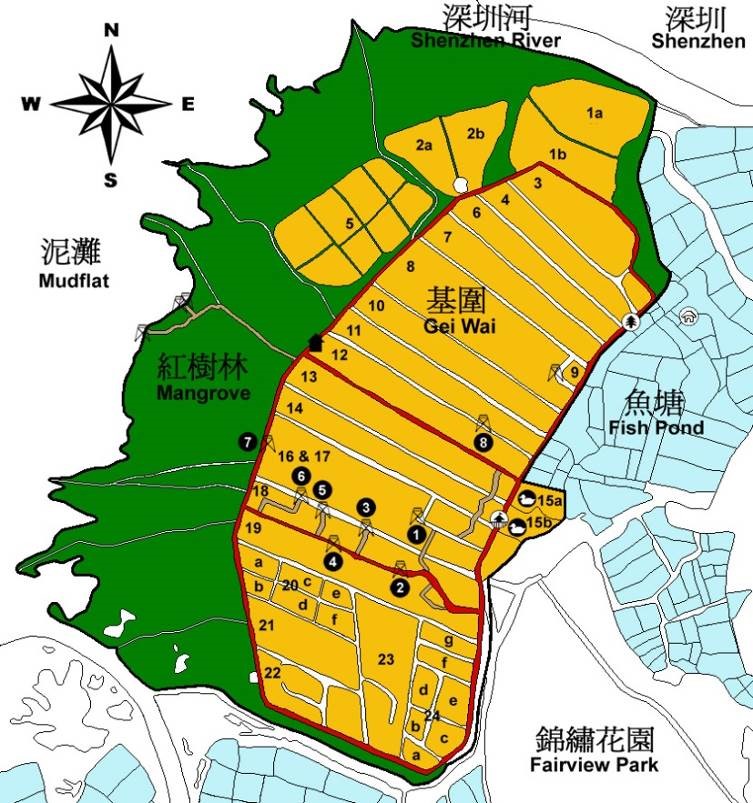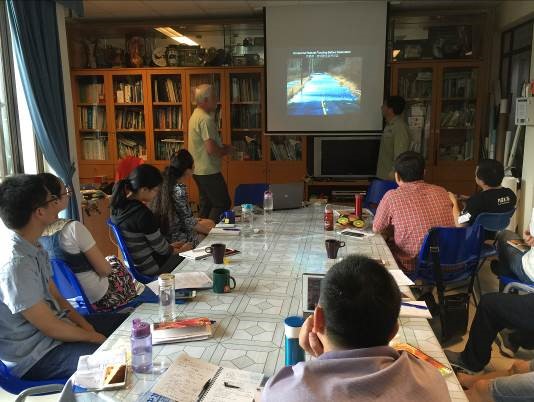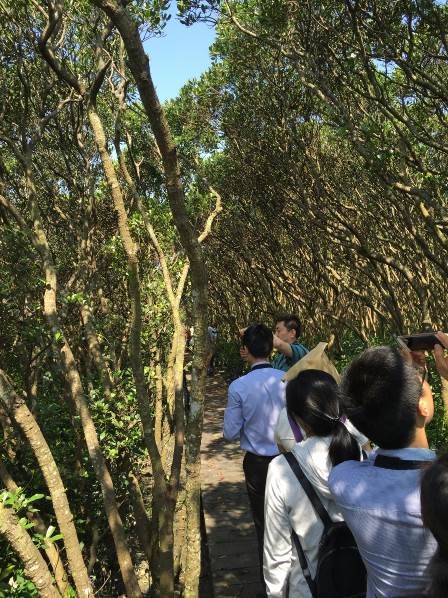A collaboration between the Convention on Wetlands Management Office of the People’s Republic of China, the Paulson Institute, Lao Niu Foundation, and WWF Hong Kong is strengthening capacity in wetland management, with positive results.
Wetlands are a key part of China’s natural capital. We know from research published in the Paulson Institute’s Coastal Wetlands Blueprint that China’s coastal wetlands alone provide economic benefits of USD 30 billion each year. The services provided by freshwater wetlands have not yet been analyzed to the same degree but they are likely to provide significant benefits in terms of water purification, urban cooling, sustainable food and carbon storage.
However, despite offering significant ecosystem services, wetlands have been under pressure. For example, the Blueprint describes how, in the last 50 years, 53% of China’s temperate coastal wetlands, 73% of its mangroves, and 80% of its coral reefs have been lost due to land reclamation, unsustainable aquaculture, invasive alien species and pollution. As a result, the number of migratory birds along the East Asian-Australasian Flyway has decreased year by year – a red flag for the health of the ecosystem.
Fortunately, following the publication of the Blueprint, the benefits provided by coastal wetlands are being acknowledged at the highest level. In February 2017, the Chinese government added 14 key coastal wetlands to a tentative list of sites to be considered for World Heritage status and, in July 2018, the State Council issued a circular strictly curtailing further land reclamation along China’s coast.

Whilst protection is a vital first step, the long-term future of wetlands – both coastal and freshwater – and the benefits they provide, depend on effective and sustainable management. Strengthening the knowledge and capacity of management staff is, therefore, a high priority. In fact, under the “Convention on Wetlands of International Importance especially as Waterfowl Habitat” (commonly known as the Ramsar Convention), there is an obligation on Parties to “promote the training of personnel competent in the fields of wetland research, management and wardening.” That is why the Convention on Wetlands Management Office of the People’s Republic of China (CWMO) collaborated with the Paulson Institute, Lao Niu Foundation, and WWF Hong Kong to initiate a comprehensive multiple-year training program for wetland management personnel from mainland China.

The training, a combination of classroom-based lectures, exercises and field studies, took place at the world-famous Mai Po wetland nature reserve in Hong Kong and was tailored to administrators from key wetland reserves, parks, wetland planning institutes and officials from the relevant central and provincial government departments. The training delivered advanced knowledge, best practice and experience on international wetland conservation and management and, importantly, helped trainees identify the key challenges faced by their individual sites and formulate appropriate action plans. Since 2015, a total of 140 wetland professionals from 16 provinces, most from the 11 coastal provinces in China, have participated.
Feedback shows how the training has made a difference on the ground at wetlands across China. In a post-training survey, 60% of respondents said they had applied the knowledge gained about wetland management planning and scientific research and monitoring, while some 50% of the respondents said they had applied knowledge in wetland environmental education and wetland restoration. As well as having had an immediate effect on the work of the participants, it is expected that the training will lead to ongoing improvements in the management of China’s wetlands in the medium to long-term.
Participants had this to say about the training:
Fang YUAN, Section Chief, Engineer, Jiangsu Forestry Bureau Wetland Protection Station, said:
“Learning from the monitoring plan for the wetland management in Mai Po Nature Reserve, we established a provincial-wide wetland monitoring platform in 2016. In the future, more monitoring sites will be set up in various wetland parks and wetland nature reserves, allowing for real-time monitoring of the important wetlands in the province.”
Yingli ZHAO, Engineer, SFA Planning & Design Institute of Forest Products Industry, said:
“We applied the knowledge on wetland protection gained from the training to solve the ecological problems in Shaanxi Fufeng Qixinghe National Wetland Park. Through biological and data monitoring, we were able to solve the problem of water eutrophication and water quality improved significantly.”
Shuai SHEN, Branch secretary of CPC, Deputy Director, Administration of Shanghai Chongming Dongtan National Nature Reserve, said:
“The training program at Mai Po gave me a new perspective on the management of wetlands and nature reserves. Many management concepts and methods now used at Dongtan Wetland are based on the experience of Mai Po. For example, we have incorporated wetland management planning learned from the training program into the 13th Five-Year Plan of the Administration to make it more holistic and more rational. It will become the basis for scientific management on Dongtan Wetland in the future.”

The training has been praised by CWMO for enabling both grass-roots and senior wetland management personnel to enhance environmental protection awareness, broaden horizons, learn advanced concepts, management techniques and experience, and promote the development of wetland conservation in China.
The Paulson Institute, in collaboration with partners including CWMO, Lao Niu Foundation and Heren Charitable Foundation, is committed to implementing the results and recommendations from the Blueprint, including training and capacity building, to create the conditions for the Chinese government to build a network of protected and effectively-managed wetlands that underpins the USD billions in ecosystem services they provide each year.


